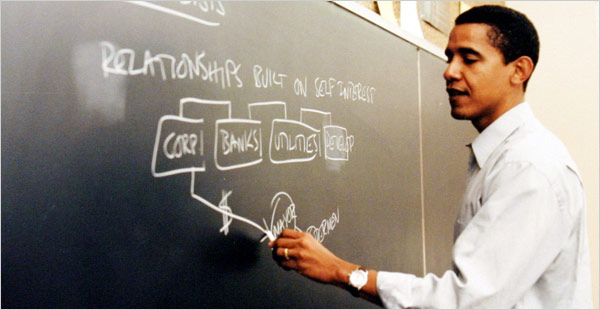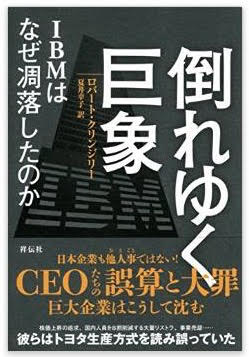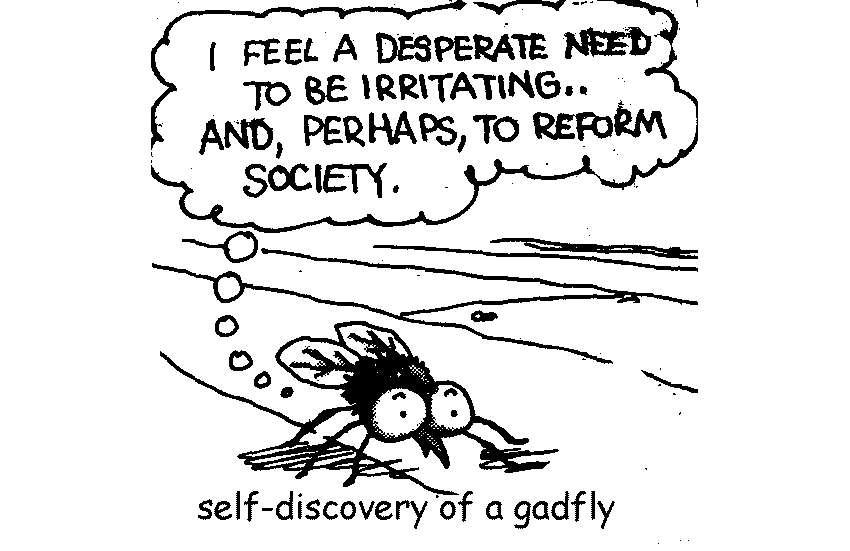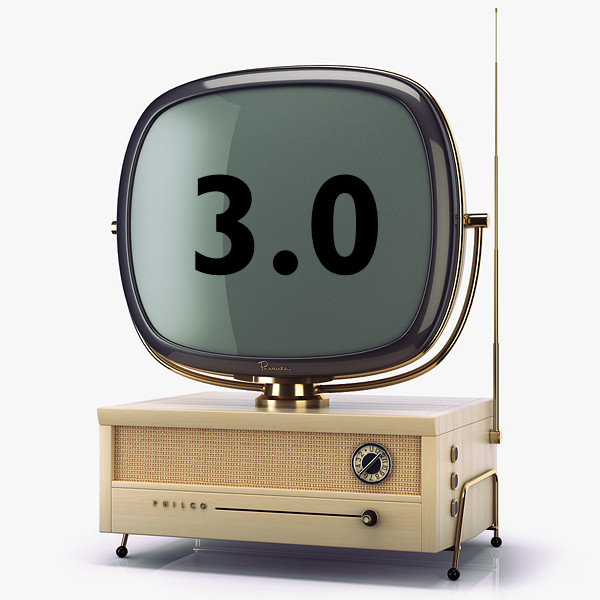
The Net Neutrality mystery
My friend Andy Regitsky, whom I have known for more than 30 years, follows the FCC, blogs about them, and teaches courses on -- among other things -- how to read and understand their confusing orders. Andy knows more about the FCC than most of the people who work there and Andy says the new Net Neutrality order will probably not stand. I wonder if it was even meant to?
You can read Andy’s post here. He doesn’t specifically disagree with my analysis from a few days ago, but goes further to show some very specific legal and procedural problems with the order that could lead to it being killed in court or made moot by new legislation. It’s compelling: Andy is probably right.

The Indiana Pi Bill, Ellen Pao, and IBM
The Indiana Legislature is in the news for passing a state law considered by many to be anti-gay. It reminded me of the famous Pi Bill -- Bill #246 of the 1897 Indiana General Assembly. There’s a good account of the bill on Wikipedia, but the short story is a doctor and amateur mathematician wanted the state to codify his particular method of squaring the circle, a side effect of which would be officially declaring the value of π to be 3.2.
The bill was written by Representative Taylor I. Record, sent to the Education Committee where it passed, went back to the Indiana House of Representatives where it again passed, unopposed. Then the bill went to the Indiana Senate where Professor C.A. Waldo of the Indiana Academy of Science (now Purdue University) happened to be visiting that day to do a little lobbying for his school. Professor Waldo explained to the Senators the legislative dilemma they faced.

Net Neutrality, Apple, and the future of TV
I’ve been hesitant to comment on the FCC’s proposed Net Neutrality rules until I could read them. You’ll recall the actual rules weren’t released at the time of the vote a couple weeks ago, just characterized this way and that for the press pending the eventual release of the actual order. Well it finally published the rules last week and I’ve since made my way through all 400+ pages (no executive summary commenting for me). And while there are no big surprises -- much less smoking guns -- in the FCC report, I think that taken along with this week’s Wall Street Journal story about an Apple over-the-top (OTT) video service the trend is clear that the days of traditional cable TV are numbered.
What booms through the FCC document is how much it’s written in response to the Commission’s loss last year in Verizon Communications Inc. v. FCC. Most of the more than 1,000 footnotes in the order refer to the legal defeat and place the FCC’s current position in that legal context. FCC lawyers have this time really done their homework, suggesting that it will be difficult for cable interests to win like they did last year.

Be a cloud storage tycoon with Google Nearline
If you have an entrepreneurial bent it’s hard not to see an opportunity to start the next big cloud storage company in last week’s Nearline Storage announcement by Google. I saw it immediately. So did Google make a big pricing mistake? Probably not.
Nearline storage usually means files stored on tapes in automated libraries. You ask for the file and a robot arm loads the tape giving you access to your data in a couple minutes. Google’s version of nearline storage is way faster, promising file access in three seconds or less. It doesn't say how it works but it makes sense to imagine the data is stored on disks that are powered-down to save energy. When you ask for the file they spin-up the disk and give it to you.

The sky is falling and the FAA isn't ready
According to a new report by the US Government Accountability Office (GAO), the US airspace system is incredibly vulnerable to hacking and a state-sponsored hacking effort could paralyze air traffic over North America. Very scary stuff. And as a licensed pilot for 45 years, I can tell you that it’s both true and not true, that the system is horribly hackable but that very vulnerability might be what we need to stimulate real airspace innovation.
Ask any American pilot how they feel about the US Federal Aviation Administration (FAA) and you’ll get variations on the same negative theme. It’s not that pilots love-hate the FAA: there’s no love about it. Pilots tend to hate-ignore the FAA, which is generally viewed as a vindictive regulatory agency caught-up in internal politics and bullshit (that’s a technical term for bureaucratic lethargy). Nobody loves the FAA.

Entrepreneurism and the politics of hope
I’m an older guy with younger kids so to some extent I live vicariously through my friends, many of whom have children who are now entering the work force and some of those children can’t find jobs. We’re not in a recession, the economy is expanding, new positions are supposedly being added every day, but the sons and daughters of my friends aren’t generally getting those jobs so they are staying in school or going back to school, joining the Peace Corps., whatever. Everyone is rattled by this. Kids don’t want to move home and parents don’t want to have them move home. Student debt continues to increase. Everyone wants to get on with the lives they thought they were promised -- the lives they’d signed up for and earned.
What changed?

Reporter’s Notebook: Yahoo, IBM, IEEE and me
I haven’t been writing as much lately. This has been for several reasons, some of which may surprise you. It’s true I’ve had to spend a lot of time fending-off attacks from IBM corporate (more on that below) but I’ve mainly been at work on two secret projects. One is a new documentary series for PBS and the other a new technology startup I’m doing with a partner. The PBS series will be announced when PBS decides to announce it but most of the shooting is already done. The startup has taken the traditional VC route and looks, surprisingly, like it will actually be funded. Evidently if your idea is wild enough and your partner is smart enough it’s still possible for an idiot (that would be me) to make it in Silicon Valley. This project, too, will be announced when the money is dry, hopefully in a week or two.
In the meantime I’ve been working on several columns. One of these, about Yahoo, has been especially frustrating. There was a time when companies actually wanted reporters to write about them, but I guess those days are past. I e-mailed Yahoo corporate communications (twice) and have yet to hear back from [email protected]. I called (again twice) the number they give on Yahoo press releases, leaving messages both times but have yet to get a call back from 408-349-4040. For awhile the Yahoo press site was completely down.

Remembering Radio Shack
With Radio Shack having declared Chapter 11 bankruptcy, with hundreds of stores closing and others possibly becoming Sprint locations, let’s take a moment to look back at the important contributions the company made in the early days of personal computing.
Charles Tandy started the Tandy Leather Company which opened hundreds of little shops in the 1950s selling kits for consumers to make their own tooled leather belts, for example. I made one in 1959, burning my name into the belt with a soldering iron. As leather craft faded as a hobby and electronics boomed many of those Tandy Leather stores became Radio Shacks (but not all -- a few leather stores survive even today). Radio Shack stores always had the advantage of proximity balanced by higher prices. If you needed a part or two you drove down to Radio Shack but if you had a bunch of electronic parts to buy there was generally some cheaper store across town.

IBM is right, I am a gadfly
gad·fly (ˈɡadˌflī/) noun. 1. a fly that bites livestock, especially a horsefly, warble fly, or botfly. 2. an annoying person, especially one who provokes others into action by criticism.
Sometimes being a gadfly is exactly what’s required. That’s certainly the case with IBM and has been for the almost eight years I’ve been following this depressing story. Gadflies came up because IBM finally reacted today to my last column predicting a massive force reduction this week. They denied it, of course -- not the workforce reduction but its size, saying there won’t be even close to 110,000 workers laid off -- and they called me a gadfly, which was apparently intended as criticism, but I’m rather proud of it.

IBM's reorg-from-Hell launches next week
IBM’s big layoff-cum-reorganization called Project Chrome kicks-off next week when 26 percent of IBM employees will get calls from their managers followed by thick envelopes on their doorsteps. By the end of February all 26 percent will be gone. I’m told this has been in the planning for months and I first heard about it back in November. This biggest reorganization in IBM history is going to be a nightmare for everyone and at first I expected it to be a failure for IBM management, too. But then I thought further and I think I’ve figured it out…
I don’t think IBM management actually cares. More on this later.

2015 Predictions: It's about the money, stupid!
It’s time, finally, for my long-delayed 2015 predictions. Things just kept changing so fast I had to keep re-writing, but have finally stopped. 2015 will definitely be the Year of Monetization, by which I mean it’s the year when the bottom line and showing profits will become a key motivator in almost every market. And while profit -- like beer -- is generally good, it isn’t always good for everyone.
So here are my 10 predictions in no particular order.

2015 will be the year when nothing happens
This was supposed to be time for my technology predictions for 2015, which I’ll get to yet, I promise, but first I want to explain the major trend I see, that 2015 will become known as The Year When Nothing Happened. Of course things will happen in 2015, but I think the year of truly revolutionary change will be 2016, not 2015. It takes time for trends to develop and revolutionary products to hit the market. I’d say the trends are clear, it’s the products and their manufacturers who aren’t yet identifiable.
So here are three areas where I’ll disagree with most of my peers and say I don’t expect to see much visible progress in 2015.

But first a look back at Bob's predictions for 2014
This is the time of year when when I typically write my technology predictions, an annual exercise in ego and humiliation I’ve been doing for about a dozen years. Historically I’ve been around 70 percent correct, which is more accurate than a random walk and therefore maybe -- maybe -- worth reading. You decide.
But first let’s look back at my predictions from a year ago to see how I did. Understand that I’m the only pundit who actually reviews his previous year’s predictions. If only I could be a weasel like those other guys!

Executive ego and the Sony Pictures network hack
Readers have been asking me to write about the recent network hack at Sony Pictures Entertainment. If you run a company like Sony Pictures it has to be tough to see your company secrets stolen all at once -- salaries, scripts, and Social Security numbers all revealed along with a pre-release HD copy of Annie, not to mention an entire database of unhappy Sony employees who want to work anywhere Adam Sandler doesn’t. But frankly my dear I don’t give a damn about any of that so let’s cut to the heart of this problem which really comes down to executive privilege.
Sony was hacked because some president or vice-president or division head or maybe an honest-to-God movie star didn’t want something stupid like network security to interfere with their Facebook/YouTube/porn/whatever workplace obsession. Security at Sony Pictures wasn’t breached, it was abandoned, and this recent hack is the perfectly logical result.

TV 3.0 is already here
Ethernet inventor Bob Metcalfe, when I worked for him 20 years ago, taught me that we tend to over-estimate change in the short term and under-estimate it in the long term. So it can be pretty obvious what is coming but not at all obvious when. And what we know about the when of it is that making money from new technologies is often a matter of investing right before that bend upward in the hockey stick of exponential change.
We all know television is bound to enter a new era sooner or later. Heck, I’ve written dozens of columns on the subject over my 17 years in this job. But this is the first time I feel confident in saying when this TV transition will take place. It already has. Forces are already in motion that will completely transform TV over the next 24 months. Come back two years from today and it will all be different with at least a few new leaders and a few icons gone bust. Get ready for TV 3.0.

